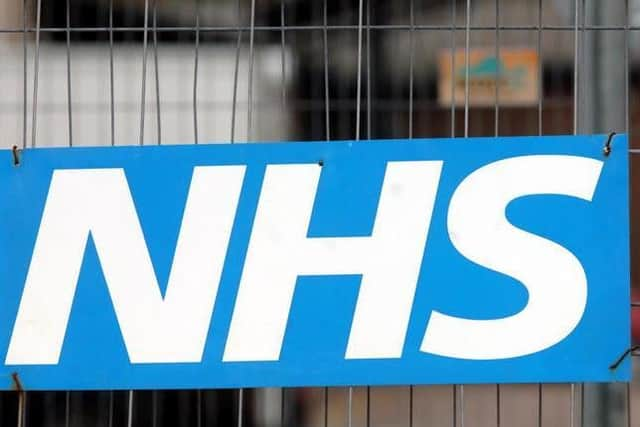Millions needed to restore Milton Keynes Hospital building
and live on Freeview channel 276
NHS Providers warned that the speed at which the NHS estate is falling into disrepair is putting patients' lives at greater risk and making it more difficult for frontline staff to provide the right quality of care.
Figures from NHS Digital show that at the end of March last year, Milton Keynes Hospital NHS Foundation Trust needed £18.5 million worth of work to eliminate the backlog of maintenance required at its sites.
Advertisement
Hide AdAdvertisement
Hide AdOf the total, £5 million was needed to eradicate high-risk issues to avoid serious injuries to patients, major disruption to services or "catastrophic failure" at Milton Keynes Hospital.


Around £7 million should have been spent on items posing a significant risk to safety or delivery of services.
High and significant backlog maintenance usually relates to essential activity, such as replacing a backup generator.
Around £6.5 million was required for medium and low grade maintenance, which typically relates to improving the patient environment and can include the refurbishment and repainting of a building.
Advertisement
Hide AdAdvertisement
Hide AdOnly one site within Milton Keynes Hospital NHS Foundation Trust requires maintenance investment – Milton Keynes Hospital.
The figures also reveal the trust spent £287,000 to cut its maintenance backlog in 2019-20.
In response to these findings a Milton Keynes Hospital spokesperson said: “The maintenance backlog details a rolling programme of works required on the hospital’s infrastructure and helps to inform how the hospital invests its money each year to ensure the estate is kept safe and fit for purpose. It accounts for improvements that are required both in the near future and in years to come, and in taking this planned approach the hospital is able to plan ahead for maintenance work and thus minimise both risk and disruption to patients.
“Each item listed on the backlog is given a risk rating and the high risk category indicates ‘where repairs/replacement must be addressed with urgent priority in order to prevent catastrophic failure, major disruption to clinical services or deficiencies in safety liable to cause serious injury and/or prosecution’. This does not indicate that works must be carried out immediately nor that they present any immediate risk to our services or patient safety, rather it denotes where timely improvements can be made to our site to maintain a high standard of service.
Advertisement
Hide AdAdvertisement
Hide Ad“The hospital also holds a contingency fund so urgent investments can be made for unexpected works and this helps to ensure that the hospital can address any pressing maintenance problems when they occur.”
In December, the Government announced a £600 million scheme to help trusts eradicate the backlog – with Milton Keynes Hospital NHS Foundation Trust awarded £1.6 million towards two projects.
Across England, £9 billion should have been spent on eradicating the backlog of maintenance work required across all NHS trusts.
Of that, more than £1.5 billion was due for the most urgent repairs.
Advertisement
Hide AdAdvertisement
Hide AdOverall, it cost £9.7 billion to run the entire NHS estate in the last financial year, the figures show.
Chris Hopson, chief executive of NHS Providers, said: "The backlog is now broadly equivalent to the annual cost of running the entire NHS estate.
“More worrying still, over half of this is for work of high or significant risk.
"In short, this problem poses an increasing threat to safety."
Advertisement
Hide AdAdvertisement
Hide AdMr Hopson said it is also impacting on the response to the pandemic, with a “dramatic” rise in demand for oxygen in recent months placing a strain on supply.
He added: “Trusts have upgraded several hospital systems over the past few months to prepare, however many trusts are telling us that the deteriorating state of the NHS estate is having an impact on the supply of oxygen.
“Our members have also been telling us how difficult it is proving to expand capacity at pace and ensure high quality infection control in old, outdated buildings.
“Unfortunately it is patients and service users who are paying the price for this backlog."
Advertisement
Hide AdAdvertisement
Hide AdA spokesman for the Department of Health and Social Care said it is investing "record sums" to upgrade NHS buildings.
“Alongside funding to deliver 48 hospitals and 20 major hospital upgrades across the country, we are providing £600 million to tackle nearly 1,800 urgent maintenance projects across 178 trusts, he added."
"This is on top of the NHS’s existing capital budgets which are directed to local maintenance priorities.”